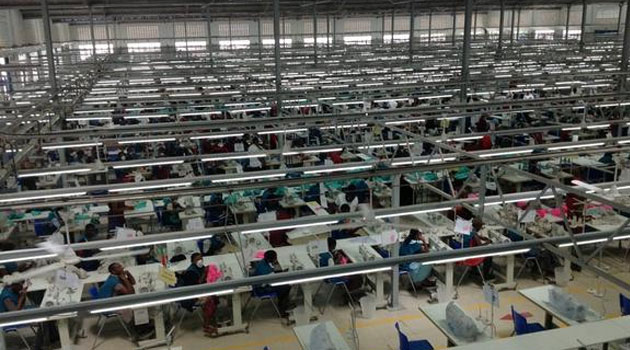
The report pointed out an increase in the average minimum wage in the informal sector at Sh 8,595 in 2017 up from Sh 7,284 in 2016./FILE
NAIROBI, Kenya, Apr 25 – 897,000 new jobs were created in 2017 despite a slowdown in economic activity as a result of a prolonged electioneering period, adverse weather conditions and a slowdown in credit to the private sector.
According to the 2018 Economic Survey report published by the Kenya National Bureau of Statistics (KNBS) on Wednesday, the informal sector accounted for the lion’s share of the new jobs at 747,000, a marginal decline from 747,300 new informal sector jobs posted in 2016, but an overall increase of 7.6 percent compared to 832,900 new jobs created in 2016.
The report pointed out an increase in the average minimum wage in the informal sector at Sh 8,595 in 2017 up from Sh 7,284 in 2016.
Speaking during the launch of the report at the Kenyatta International Convention Centre (KICC), KNBS Director General Zachary Mwangi said the education sector emerged as the leading employer in the modern sector during the period under review.
“We noted that education, agriculture, fisheries and manufacturing continued to be leading employers in the modern sector with education accounting for 20.7 percent of employment in the sector,” he said.
According to the survey, inflation increased from 6.3 percent in 2016 to eight percent in 2017, an increase mainly attributed to rising food and oil prices.
Inflation, as measured by the Consumer Price Index, was the highest in May 2017 hitting 11.7 percent.
The situation according to KNBS was however brought under control after the introduction of government subsidy on maize flour and other food items.
Internationally, inflation rose from 2.8 percent in 2016 to 3.1 percent in 2017 owing to increase in oil prices even as global trade registered a 4.8 percent growth compared to 2.6 in 2016 as a result of the recovery of manufacturing.
The economy also registered a percentage point slowdown recording a 4.9 percent growth in 2017 compared to 5.9 percent in 2016.
The local economic growth was however marginally high compared to the global average of 3.6 percent in 2017 having improved from 3.1 percent the previous year.
“The growth in the period under review was largely drive by the service-oriented sectors as key sectors of the economy such as agriculture and manufacturing recorded a deceleration,” Mwangi pointed out.
Credit extended by commercial banks to the private sector recorded a slight increase posting 2.4 percent in 2017 compared to 4.1 percent in 2016.
Nevertheless, total domestic credit grew by 7.9 percent to reach 3,252 billion in 2017.
Speaking during the launch of the economic survey, National Treasury Cabinet Secretary Henry Rotich said the government was considering introducing a legal framework to promote uptake of credit in the private sector which recorded a marginal increase.
“We’re going to engage Parliament to develop a legal framework which will address the management of credit because it is not just the issue of the cost of credit but also consumer protection,” Rotich said while making reference to plans to scrap interest caps.
He noted that the government was keen on addressing issues leading to high-interest rates with the impending removal of interest rate caps.
According to the 2018 Economic Survey, lending rates remained stable in December 2017 at 13.4 percent within the four percent margin above the 10 per cent Central Bank Rate.
The Nairobi Securities Exchange 20-Share Index finished at 3,712 points in December 2017, a significant increment compared to 3,186 in 2016.


































